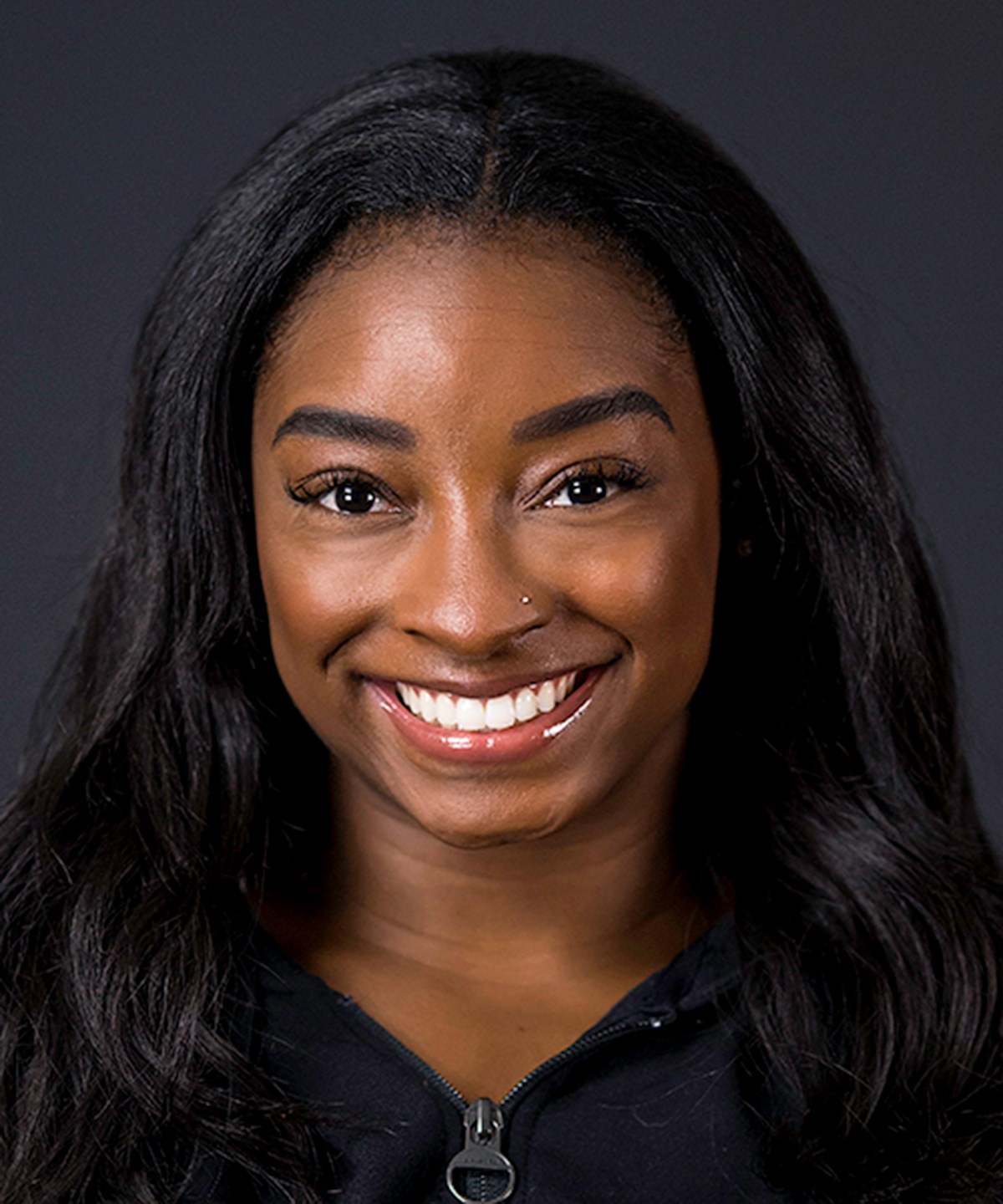Simone Biles: A Different Kind of Olympic Athlete
| revcom.us
From a sports correspondent:
If you are paying attention to the Olympics, or not, you have probably heard about U.S. Olympic athlete Simone Biles withdrawing from the Olympic gymnastics competition after she missed a difficult vault, completing 1.5 twists of a planned 2.5 twists. Biles has won 31 combined Olympic and World Championship gymnastic medals with four gold medals in the 2016 Rio Olympics and is considered the greatest gymnast of all-time.
In an interview with NBC after withdrawing, Biles talked about her mentality of competing. She recounted that at age of 24, she had begun to get nervous about her skills. She said, “I’m a little bit more scared of my skills now. Because whenever I was younger, I was pretty fearless. But now I’m just like, ‘Okay, I’m getting older. This could go wrong, this could go wrong, that could do this.’ And so, that kind of scares me a little bit.”1
After she withdrew, Biles received an ugly fascist barrage, but she also garnered support from many athletes and celebrities, which we previously wrote about.2 Biles came back and won a bronze medal in the balance beam.
To begin to understand this, we need to recognize the extreme pressure that elite Olympic athletes face. Michael Phelps described it as being under “unbelievable pressure.” Simone Biles said she felt that she was “having the weight of the world on her shoulders.” The athletes are expected to bring home medals no matter what. And what happens if you fail to win when you are expected to? You get thoroughly trashed in the print media, on television and in social media.3
The Physical Dangers of Gymnastics
Elite gymnasts perform incredibly difficult and dangerous routines. The aerials that Biles does require being suspended 10 feet in the air, upside down and twisting at a high rate. Her routines are so difficult that there is not a formula for being able to score them because no one ever thought that those routines would ever be attempted.
Most aerial routines done by Olympic gymnastics athletes could result in severe physical harm when they fail to complete the maneuver. Adriana Duffy, a former Puerto Rican national champion, was paralyzed while training on vault in 1989. The Chinese gymnast Sang Lan sustained a similar injury on vault when her coach tried to adjust the position of the springboard as she ran toward it. Melanie Coleman, a collegiate gymnast in Connecticut, died from a spinal cord injury in 2019 after her hands slipped off the uneven bars during practice.
Biles spoke about the inherent danger when you are failing to complete the maneuver as happened to her in her vault routine at the Olympics. “You have to be there 100 percent or 120 percent because, if you’re not the slightest bit, you can get hurt. I didn’t want to go out there and do something dumb and get hurt and be negligent.... Not worth it. At the end of the day, it’s like, we want to walk out of here. Not be dragged out of here on a stretcher or anything.”4
The “Twisties” and the “Yips”
In most sports the inability to do something that you have regularly done is known as the “yips.” This is when a basketball player, who historically is a very good free throw shooter, becomes unable to make free throws, or a baseball pitcher, who historically throws strikes over the plate, becomes unable to do so.
In gymnastics, this is called the “twisties.” Former UCLA gymnast JaNay Honest said, “It’s kind of like forgetting how to twist your body in the air. It’s really scary because when you’re doing a skill like Simone does ... it’s really dangerous.”
On a basic level, the twisties is a mental state where your muscle memory shuts down in the air mid-twist. It can happen to any gymnast at any time, but is more likely under intense pressure.
According to the BBC, the “twisties” “can cause a gymnast to lose their sense of dimension and space while in the air, and could potentially cause them to lose control of their body and do extra flips or twists while airborne. The condition may also lead to an athlete being unable to safely land.”5
Dominique Moceanu put it this way: “In our sport, we essentially dive into a pool [with] no water. When you lose your ability to find the ground ... the consequences can be catastrophic.”
Biles said that she has had several bouts of the ‘‘twisties” but never during a competition and that it took her a couple of weeks to get over it.
Capitalism-Imperialism Is Harmful to Athletes’ Health
Under the capitalist-imperialist system, the culture of sports is that you are expected to sacrifice your body for the sake of the team or the country.
Women’s gymnastics is one of those sports where athletes are subjected to grueling training, putting their bodies on the line every time they leap into the air. They are sexually objectified and forced to wear bikini-cut leotards. In order to maintain a certain body type, women gymnasts have higher rates of eating pathologies than other sports. Further, over 500 women gymnasts in the U.S., including several dozen national team members including Biles, were subjected to sexual abuse at the hands of former national team doctor Larry Nassar under the guise of medical treatment at the Martha and Bela Karolyi National Women’s Training Center.6
Biles spoke about the role that USA Gymnastics had in knowing about the sexual abuse and not doing anything about it: “We had one job [winning Olympic gold],” Biles said. “And we have done everything that they asked us for—even when we didn’t want to. And they couldn’t do one damn job! You had one job; you literally had one job, and you couldn’t protect us!”7
In an interview on the Today Show, Biles was asked if the (sexual) abuse could have affected her performance in Tokyo. Her response was, “Now that I think of it, like maybe in the back of my head probably yes, because there are certain triggers that you don’t even know, and I think it could have.”8
A Different Kind of Olympian
After she withdrew from several events, Simone Biles came back and competed in the final Olympic Women’s Gymnastics event, the balance beam, winning the bronze medal (third place). She changed her routine so she would not have to do a very dangerous twisting dismount. According to many observers, Biles’ mere presence was more important than her performance, and her bronze medal may be the most important medal she has won. She did not fail. She made a comeback in the same Olympics.
Her decision to withdraw from events that required twisting in the air was not based on poor mental health. In fact it’s the opposite of that. It was based on her taking control over her own physical health and saying “no” to those who demanded her to compete despite the fact that she was having a bout of the “twisties.”
Further, Simone stayed and cheered on her teammates who took her place in the events she withdrew from. She became friends with the Chinese gymnasts who won medals and gave them big hugs when they performed well.
Biles has been a vocal supporter for the righteous protests against police murder of Black and other oppressed peoples. In an interview with Vogue magazine, she said, “We need change. We need justice for the Black community. With the peaceful protests it’s the start of change, but it’s sad that it took all of this for people to listen. Racism and injustice have existed for years with the Black community. How many times has this happened before we had cell phones?”9
Simone Biles has given us a small glimpse of the kind of athlete we need—one that does not objectify women athletes; one that does not require giving up your body for your team or your country; one where athletes can express their political views and not be punished; one where athletes can make the ultimate determination regarding their own physical health; one where friendship is more important than competition.
1. Simone Biles talked about how her mentality towards gymnastics changed before pulling out of the team event, Insider, 7/27/21 [back]
2. Ugly Fascist Barrage Aimed at U.S. Olympic Gymnast Simone Biles, revcoms.us [back]
3. *Officials in Israel’s delegation to the Tokyo Olympics voiced strong criticism of the country’s judo team, which failed to win a medal.
*Chinese social media users targeted Olympic athlete Wang Luyao with online abuse after failing to qualify for the air-rifle finals.
*Following the defeat of ace archers Deepika Kumari and Pravin Jadhav at the quarterfinal stage of the mixed archery event, the Times of India chose to mock the athletes over their performance.
*Tennis star Naomi Osaka, who lit the Olympic cauldron, took a drubbing on social media, with some questioning her identity (her mother is Japanese and her father is a Black Haitian) or right to represent Japan after she lost a tennis match. [back]
4. Simone Biles was abandoned by American Olympic officials, and the torment hasn’t stopped, Washington Post, July 29, 2021 [back]
5. Simone Biles Opens Up About Her Battle with 'Twisties' at the Tokyo Olympics, Shape.com, July 30, 2021 [back]
6. The Gymnastics Factory: The Rise and Fall of the Karolyi Ranch, ESPN, July 14, 2020 [back]
7. Simone Biles blasts USA Gymnastics: ‘You had one job . . . and you couldn’t protect us!’ Washington Post, August 7, 2019 [back]
8. Simone Biles: Larry Nassar sexual abuse ‘could have’ affected her in Tokyo , Today, August 4, 2021 [back]
9. Simone Biles Just Spoke About Breonna Taylor, Colin Kaepernick, and Black Lives Matter, Glamour, July 9, 2020 [back]

Simone Biles
Sports in the future socialist society
from the Constitution For The New Socialist Republic In North America (Draft Proposal)
Article I. Section 2.
J. Art and Culture.
6. In addition to the sphere of art and artistic creation, the government (with the central Executive Council having the overall responsibility, while establishing agencies and instrumentalities for this purpose and working with government at other levels) shall also promote and support sports events and activities, to provide entertainment and recreation and promote health and fitness throughout society. This shall include some professional sports teams and leagues, while at the same time emphasis is given to the participation of people broadly, and in particular the youth, in sports of many different kinds. The role of competition in sports will be recognized and given its appropriate place, but the basic and overall priority in sports will be to foster bonds of friendship, comradeship, community, cooperation and the shared experience and joy of sport, along with its contribution to health and fitness–and the promotion of internationalism, particularly in sports activities that are engaged in together with people from other countries.
Get a free email subscription to revcom.us:


